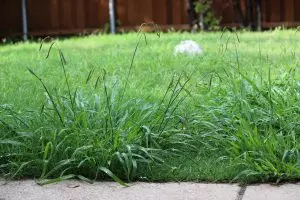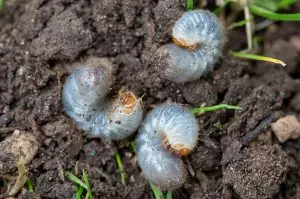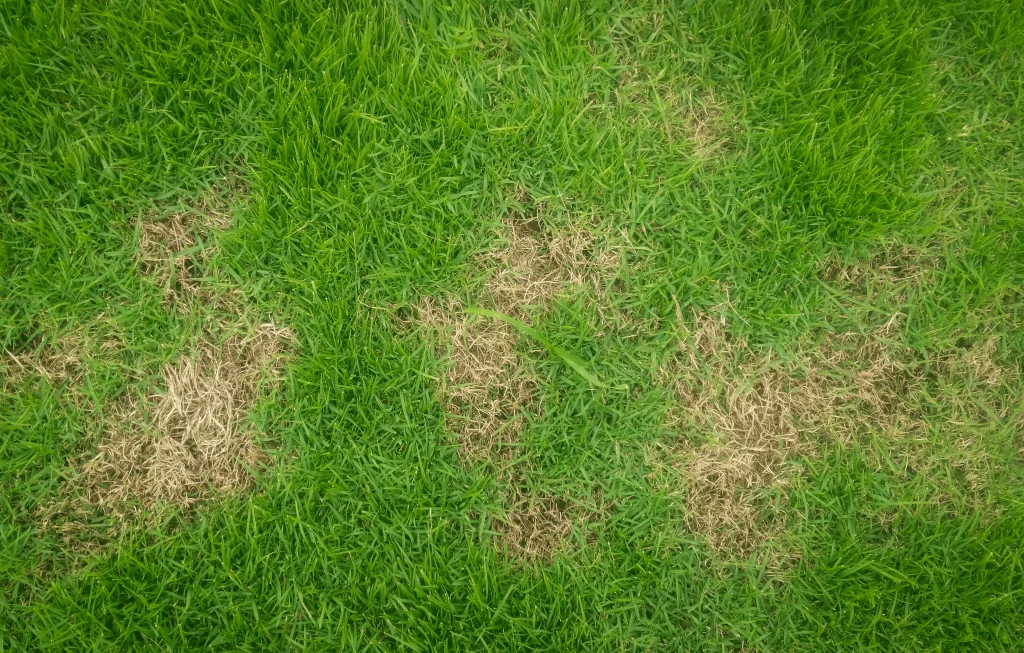
Many animals love to graze on grass for food. The first thing that comes to mind might be cows on a ranch or goats on a farm. Unfortunately, certain species of insects also like to munch on fresh green grass. The damage can be substantial as hundreds of tiny insect larvae take advantage of your well-manicured greenscape. Knowing the difference between the sod webworm vs. grubs is critical because each species requires specific treatments. Here’s how to tell the difference between lawn pests and what you can do to fight back.
Grass-Borne Pests
Maintaining a healthy lawn with its green color is an ongoing effort for homeowners in South Florida. While it is common to see occasional patches of yellowed or brown grass temporarily, it’s still distressing. There are several factors, in addition to worms and grubs, that could cause this issue, including:
- Inadequate water supply
- Changes in shade cover
- Soil nitrogen composition
- Excessive thatch
These are commonly treated with lawn care methods such as fertilizers and grasses that can withstand high temperatures and moisture levels. One of the most common grass options is St. Augustine. Its thick carpet-like appearance is very appealing to homeowners, but unfortunately, grass pests love it too.
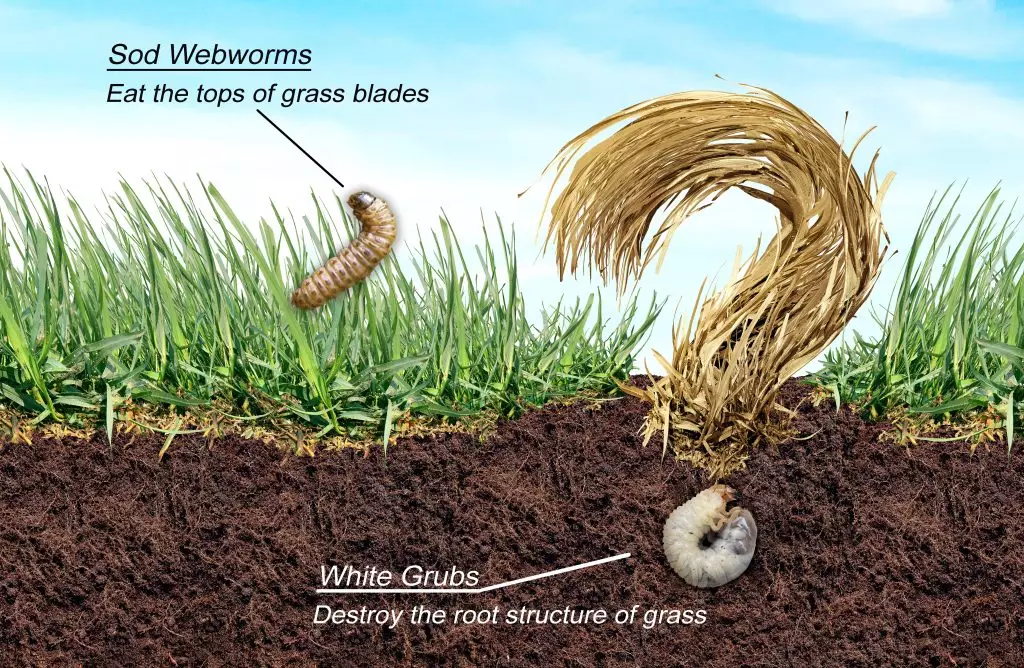
Differentiating Sod Webworms vs. Grubs
Both of these pests are the larval form of common insects. A sod webworm will eventually become a type of moth while grubs are the young of beetles. In either case, females lay eggs that hatch between the soil and thatch layer and eventually begin to consume the grass. However, there are key differences that can help a homeowner decide on treatment options.
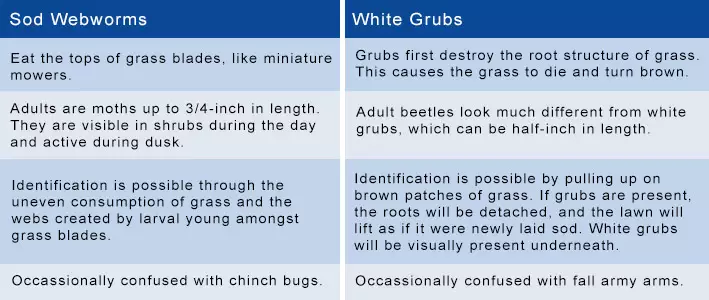
Treating These Turf Pests
There are two key factors to consider when trying to combat sod webworms and white grubs—knowing which is troubling your lawn and understanding their seasonal behavior. For example, you cannot use the same insecticide for sod webworms that you would use for grubs. White grubs require insecticides that don’t bond to organic material, like grass. The insecticide needs to penetrate below the soil and thatch layer like carbaryl or trichlorfon can. Webworm treatments can and should include chemicals that bind to grass blades (these often end in -thrin).
In addition, there is a difference between curative and preventive treatments. They need to be timed carefully with swarming and breeding seasons, as well as with weather systems, in order to provide maximum benefit for your lawn.
Get Professional Care For Your Lawn
Numerous products are available for lawn pest treatment, but as noted above, they may not be able to treat the specific issue that’s causing problems for your lawn. So instead, rely on experts who have experience working with various pests, from those that target lawns to those that can carry diseases affecting loved ones and pets.
Not only will they be able to devise a plan based on your current infestation, but experienced pest control technicians can outline potential steps you can take to limit the impact of various unwanted creatures on your property. They also have access to the specific applicators and treatments that will help eliminate infestations quickly and then keep them from coming back, regardless of the species of pest affecting your lawn.
Contact Nozzle Nolen for a Free Evaluation
Nozzle Nolen is the only locally-owned and operated pest control company in South Florida that is Green Shield certified in its eradication and prevention techniques. Our process is environmentally friendly and effective, giving you peace of mind that family, friends, and pets are all protected and safe.
Being able to identify the difference between sod webworms vs. grubs is a crucial first treatment step. Helping treat and prevent sod webworms and white grubs are just part of our 365-day Complete Home Protection Plan. We also help keep your property free from spiders, bees, wasps, rodents, and various types of destructive termites. Our tactics adjust with the weather and the life cycles of the pests we fight, so you can be sure you’re getting the right care your property needs to take care of these invasive pests.
Call us today at 800-226-6536 or contact us for a free evaluation. We’ll evaluate your property for free and give you a rundown of what pest control options fit your needs.
